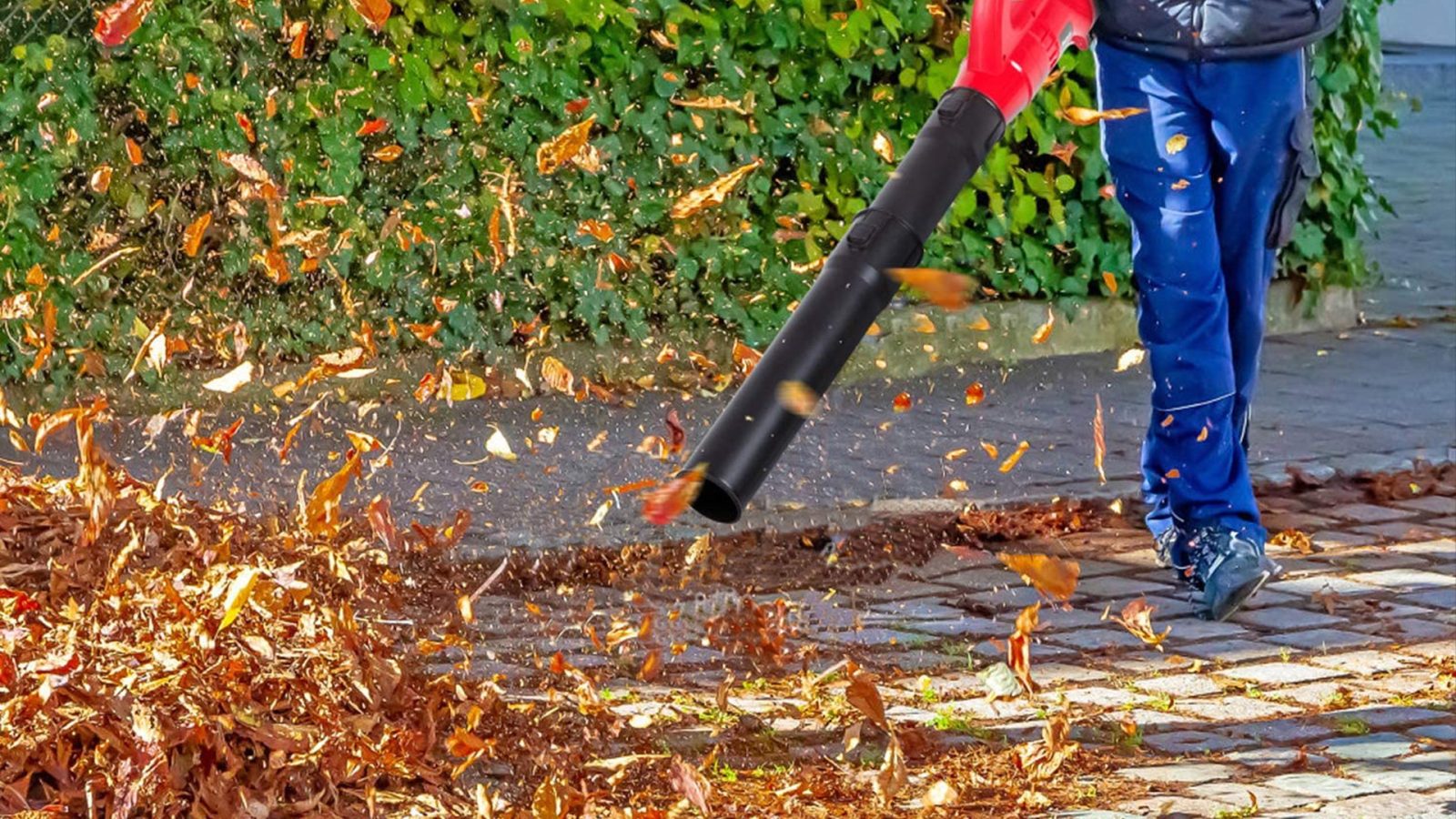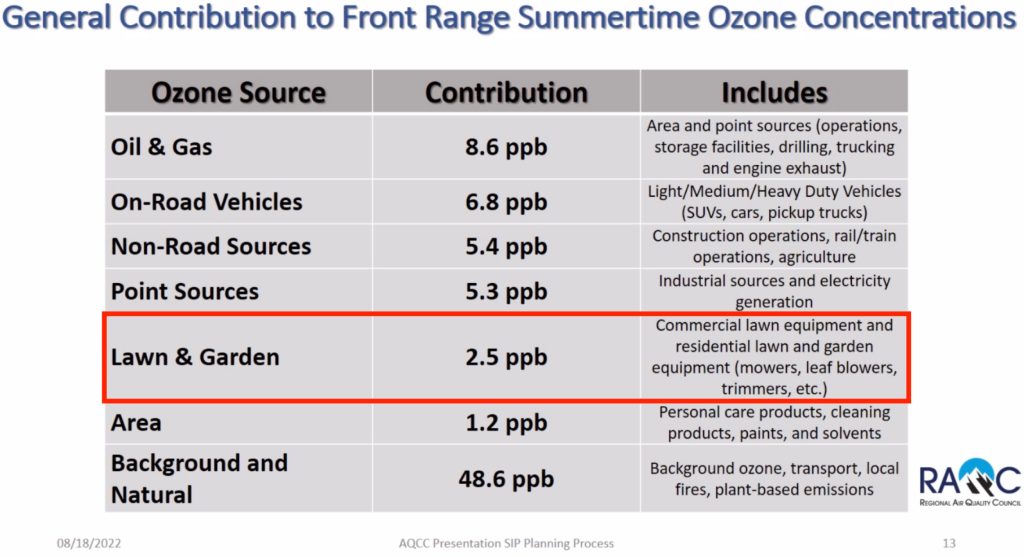
Colorado is considering a regulation that would ban noisy, polluting gas-powered lawnmowers and leafblowers in the state as of 2025. It’s similar to a California rule which goes into place in 2024, but Colorado’s goes even further and would ban government and commercial use, along with sales.
Gas-powered lawnmowers and leafblowers are surprisingly big polluters because most run on two-stroke engines. Two-stroke engines are smaller and cheaper than four-stroke engines but are also tremendously more polluting because they exhaust tiny particles of unburned fuel into the air.
A commonly cited statistic states that running a two-stroke engine for an hour emits as many harmful air quality pollutants as much as driving a passenger car 1,100 miles. Cars still emit more global warming pollutants, but for air quality, two-stroke lawn equipment is much worse.
For this reason, many air quality agencies see these “small off-road engines” as low-hanging fruit for regulation. Colorado already offers vouchers for the exchange of dirty lawn equipment, giving monetary incentives to residents and businesses to upgrade to cleaner, easier-to-maintain electric lawn equipment. Even though this comes at a cost to the government, there’s so much air quality benefit that it’s a good use of public money.
To say nothing of the noise pollution those engines cause, which is even more disruptive given the recent trend towards work-from-home for many professionals.
So Colorado’s Regional Air Quality Council is thinking about implementing a ban on the use of these dirty engines, which could go into place as early as 2025. The ban would likely go into effect statewide and affect not only sales of handheld gas-powered units but also a government and commercial use ban, though residential users would likely be exempted from the ban.
While a two-year timeline for implementation seems rather sudden, RAQC believes that by sending this signal now, commercial operators would have time to start replacing their units early. Since these units are used all day long, they often have a pretty high turnover rate. If businesses start replacing their gas-powered equipment now, they won’t suddenly have to replace everything the day the ban goes into effect.
Plus, Colorado’s Northern Front Range – the eastern edge of the Rocky Mountains, the region that includes Denver and areas north of it, which is the area the RAQC is in charge of – is in “severe” nonattainment of EPA pollution rules, which means they have to work fast to get into compliance before a 2026 EPA deadline.

A ban on small lawn equipment is a lot easier to organize than large regulations on cars or on the state’s oil & gas industry (which is concentrated north of Denver), which both face organized industry opposition. Though, there is work happening on both of those separately.
RAQC is considering putting a minimum size on the commercial ban and exempting very small businesses. It would also likely not apply to larger equipment, like ride-on mowers, as these typically have a longer service life and use four-stroke engines and therefore are paradoxically less polluting than their smaller handheld cousins.
And while residents likely wouldn’t see a ban, the benefits of switching to electric lawn equipment are significant for residential use. Since we spend so much of our time in residential areas, the benefits of better air quality and lower noise pollution are even more important to attain in those areas.
So, commercial gardening services working in residential areas would be affected by the ban, but your neighbor wouldn’t have to stop using their old weed whacker two times a month – but they might want to, for their own health.
Enforcement is still an open question, but this is one reason RAQC is thinking about recommending this ban statewide rather than just in the Northern Front Range area. It’s easier to standardize the ban over a larger area than have a patchwork of local or regional rules.
The RAQC is a government-created board comprised of government leaders and local elected officials. The board recommends plans to Colorado’s Department of Health and Environment’s Air Quality Control Commission and writes the state’s implementation plans for air quality.
While the plan has not been officially proposed or voted on yet, the board seems to be in agreement that this regulation would be an easy way to reduce harmful pollutants at a low cost and is likely to recommend implementing something similar to what is being discussed. The board’s official vote should happen in the next couple of months, after which it moves on to the Colorado government to implement as a regulatory process.
If you’re in Colorado (or anywhere else that has air), check out Electrek‘s “Green Deals” section, where we periodically post green tech deals. You’ll find deals on electric lawn equipment quite often, so save yourself a few bucks while helping to save the lungs and ears of your neighborhood, too. And check with your state’s clean air regulator to see if any rebates are available – here’s Colorado’s page (and here’s California’s), but there may be incentives available if you live in another state too.
